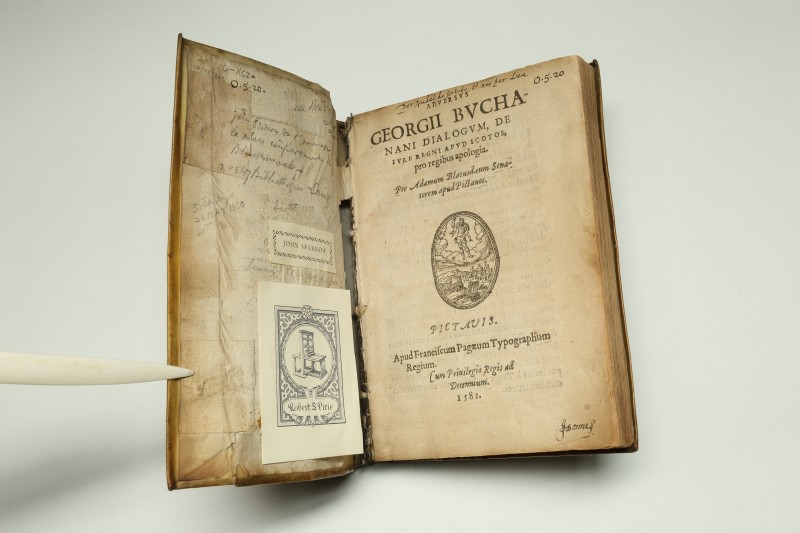The Bodleian Library has acquired one of the last known volumes from the library of John Donne in private hands with the support of the Friends of the National Libraries. It is a copy of Adam Blackwood’s Adversus Georgii Buchanani dialogum, de iure regni apud scotos, printed in Poitiers by François Le Page in 1581. The work was written in defence of Mary Queen of Scots and argued against George Buchanan's De jure regni apud Scotos.
More than 200 books from Donne’s library have been identified and in common with almost all of them this copy contains Donne’s sparse but distinctive reading marks in pencil and ink. He has also signed his name on the bottom right-hand corner of the title-page and added his motto (“Per Rachel ho seruitu et non per Lea") at the head of the title. Donne acquired many books as part of his research for Pseudo-martyr (1610) and has highlighted passages in this volume relating to the deposition of kings, the power of the pope and the overthrow of tyrants.
The volume adds to the Bodleian’s status as a significant centre for the study of the works of John Donne. It holds 23 signed books from his library, and another seven bear strong evidence of his ownership. Two more contain presentation inscriptions (including a copy of Pseudo-martyr inscribed to his friend Rowland Woodward), and a further seven items are bound up with identified works from his library. The vast majority entered the Library in 1659 with the bequest of John Selden (1584-1654), but at least two arrived during Donne’s lifetime. Remarkably one has had Donne’s ownership concealed and was only rediscovered in 2010 during conservation work. Among the manuscript holdings relating to Donne are the Merton and Dowden scribal transcripts, the only known survival of one of his English poems in his own hand (a verse epistle to Lettice, Lady Carey), and a copy of Good Friday Riding Westward circa 1613, in the hand of Nathaniel Rich.
